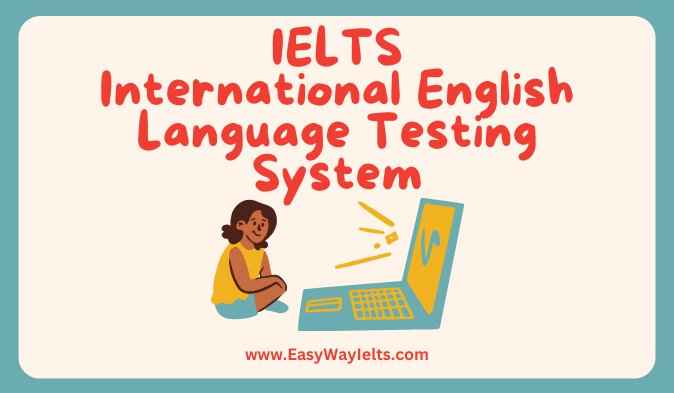Recent updates in Canadian immigration policy continue to emphasize language proficiency as a key factor in evaluating applications.
While IELTS is not mandatory for all visa categories, a strong language score can significantly improve your chances of success.
The Express Entry system, for instance, heavily relies on the Comprehensive Ranking System (CRS), which awards points for language ability.
Are you aspiring to make Canada your new home? If so, you’ve likely encountered the term IELTS (International English Language Testing System) more than a few times.
This globally recognized English proficiency test is often a critical component of the Canadian immigration process.
Whether you are seeking permanent residency, a work permit, or a study visa, your ability to demonstrate language skills in English can significantly impact your chances of success.
Canada, as a multicultural and bilingual nation, values effective communication in either English or French, and IELTS plays a pivotal role in assessing one of these key linguistic competencies.
The journey of immigration can be complex and, at times, daunting. Understanding the requirements, including language proficiency benchmarks, is vital.
Through this article, you will discover how IELTS fits into the immigration framework, why it holds such importance, and how it can shape your application process.
By the end of this discussion, you will not only appreciate the role of IELTS but also feel more equipped to approach this crucial step in your Canadian immigration journey.
So, let’s delve into how IELTS functions as a gateway to fulfilling your Canadian dream.
Role of IELTS in Canadian Immigration
Canada welcomes thousands of immigrants every year under various programs, including Express Entry, Provincial Nominee Programs (PNPs), Family Sponsorships, and work or study visas.
For most of these pathways, proving your proficiency in English is a prerequisite. This is where IELTS becomes indispensable.
1. Express Entry and Language Benchmarking
If you’re applying through Express Entry, you must meet the requirements of the Canadian Language Benchmark (CLB), a standardized system that translates your IELTS score into Canadian immigration standards.
For instance, an IELTS score of 6.0 in each band (Listening, Reading, Writing, and Speaking) corresponds to a CLB level of 7, which is often the minimum required for Federal Skilled Worker or Canadian Experience Class applications.
The higher your IELTS score, the more Comprehensive Ranking System (CRS) points you earn, significantly boosting your chances of receiving an Invitation to Apply (ITA) for permanent residency.
2. Role in Provincial Nominee Programs (PNPs)
Many provinces in Canada have their immigration programs tailored to specific labor market needs.
Most PNPs also require proof of English proficiency, with minimum CELPIP or IELTS scores set to reflect job requirements.
Achieving the target scores can make you eligible for nominations that further enhance your CRS score in Express Entry, making IELTS a critical stepping stone.
3. Study Visas and Academic Success
Planning to study in Canada? Academic institutions use IELTS to evaluate if you can cope with English-language education.
A good IELTS Academic score not only secures admission but also helps demonstrate your readiness to thrive in an English-speaking academic environment.
4. Work Permits and Employment Opportunities
Employers in Canada often look for candidates who can communicate effectively in English.
While some work permit applications may not explicitly mandate IELTS, possessing a strong score can set you apart from competitors in the labor market.
5. Spousal and Dependent Applications
Even if you are accompanying a primary applicant, having an IELTS score can positively influence the overall strength of the immigration application. It highlights your ability to integrate into Canadian society.
Different Visa Categories and IELTS Requirements
Canada offers multiple immigration pathways, each tailored to meet diverse needs such as skilled workers, students, or family reunification.
As an aspiring immigrant, understanding the specific IELTS requirements for your chosen category is essential to ensure your application is successful.
Express Entry
(Federal Skilled Worker, Federal Skilled Trades, and Canadian Experience Class)
The Express Entry system is a points-based immigration program primarily aimed at skilled workers.
For these streams, your IELTS score is critical to meeting the minimum Canadian Language Benchmark (CLB) levels:
- Federal Skilled Worker Program – A minimum IELTS score equivalent to CLB 7 is required in all four modules (Listening, Reading, Writing, Speaking). Achieving a higher score can significantly improve your Comprehensive Ranking System (CRS) score.
- Federal Skilled Trades Program – A minimum CLB 5 in Speaking and Listening and CLB 4 in Reading and Writing are often sufficient.
- Canadian Experience Class – The requirement depends on your job type. For high-skilled jobs, you’ll need at least CLB 7, while lower-skilled positions may only require CLB 5.
Provincial Nominee Programs (PNPs)
Each province sets its own criteria, and IELTS scores vary depending on the PNP and the nature of the occupation. For instance:
- Ontario Immigrant Nominee Program (OINP) – Typically requires an IELTS score aligned with CLB 7 or higher for skilled workers.
- Manitoba Provincial Nominee Program (MPNP) – Often accepts lower scores, such as CLB 5, for specific in-demand professions.
Study Visas
If you’re planning to study in Canada, most academic institutions demand IELTS Academic scores to ensure you can manage coursework in English. Common requirements include:
- Overall scores of 6.0 to 7.0.
- A minimum of 6.0 in each band for undergraduate programs.
- Graduate programs and top-ranking universities require higher scores.
Work Permits
While not all work permits explicitly require IELTS, demonstrating English proficiency can strengthen your application, especially if you’re in a competitive labor market. Employers often prefer candidates with strong communication skills.
Family Sponsorships
For family sponsorships, the language requirements are generally lenient. However, spouses or partners applying as part of economic immigration streams may need to submit IELTS scores to meet eligibility or enhance their application.
The Impact of IELTS Score on Your CRS Score
In the Express Entry system, your IELTS score has a direct and significant effect on your CRS score. Here’s how it works:
- Language Proficiency Points – You earn CRS points based on your IELTS results, with higher scores translating to more points. For example:
- CLB 7 – Grants moderate points but may not be competitive in highly selective draws.
- CLB 9 or above – Often referred to as the “magic score,” it dramatically boosts your CRS points, potentially up to 136 points for the language section alone.
- Skill Transferability Factors – Your IELTS score can multiply its impact when combined with other factors. If you have post-secondary education or Canadian work experience, a high IELTS score earns additional points in the skill transferability section, which can contribute up to 100 points.
- Partner’s Language Proficiency – If your spouse or partner also submits a strong IELTS score, it can add up to 20 more CRS points to your application.
- Threshold for Provincial Nominations – High IELTS scores make you more attractive to provinces seeking skilled immigrants. In some cases, a strong IELTS result becomes a deciding factor in receiving a provincial nomination, which adds 600 points to your CRS score, hence guaranteeing an Invitation to Apply (ITA).
Alternative Pathways to Canada Without IELTS
While IELTS is the most recognized test for Canadian immigration, there are pathways and options that either don’t require it or allow alternatives:
French Language Proficiency (TEF/TCF)
If you’re fluent in French, you can take the Test d’évaluation de français (TEF) or Test de connaissance du français (TCF) instead of IELTS.
French-speaking applicants are often prioritized under programs like the Francophone Mobility Stream or Quebec immigration programs.
Family Sponsorship
If you’re applying under a family sponsorship program, you may not need to prove your language proficiency, particularly for spousal or dependent applications.
However, this depends on the specific application type and requirements.
Study and Post-Graduate Pathways
Certain institutions in Canada accept other tests like TOEFL or PTE Academic for admission.
If you study in Canada and later apply for permanent residency through the Canadian Experience Class, you may be able to bypass stringent language requirements depending on your role and work experience.
Employer-Sponsored Visas
In some cases, employers directly sponsor work permits, especially under the Global Talent Stream.
Language testing is not always mandatory if the employer can justify your role and suitability.
Alternative English Tests
Canada accepts other English tests such as CELPIP (Canadian English Language Proficiency Index Program).
CELPIP is specifically designed for Canadian immigration and may be a more suitable option for some applicants.
Refugee and Humanitarian Programs
These pathways focus more on humanitarian needs rather than skills or language proficiency. IELTS is not typically required in such cases.
Exploring these alternatives doesn’t diminish the importance of preparing for English proficiency tests, as they often enhance your adaptability and integration into Canadian society.
When you carefully choose your immigration pathway and consider all available options, you can tailor your strategy to maximize your chances of success.
Conclusion
Your proficiency in English not only impacts your eligibility for Canada’s immigration programs but also shapes your ability to adapt and thrive in a new cultural and professional landscape.
When you invest in your IELTS preparation, you’re not just meeting a bureaucratic requirement; you’re equipping yourself with a skill set that will serve you well in Canada.
As you prepare for this important step, remember that your IELTS score can open doors to opportunities that might otherwise remain out of reach.
Whether it’s securing a higher CRS score in Express Entry, meeting the requirements of a provincial nomination, or gaining admission to a prestigious academic institution, the test serves as a bridge between your current life and your aspirations of building a future in Canada.
Take the time to familiarize yourself with the format of the test, identify your strengths and areas for improvement, and dedicate yourself to thorough preparation.
By doing so, you are taking a decisive step toward achieving your Canadian dream. With persistence and determination, success is within your reach, and Canada will soon welcome you with open arms.
Frequently Asked Questions (FAQs)
- Is IELTS mandatory for a Canada visa?
No, IELTS is not mandatory for all Canadian visa categories. However, it is highly recommended for most programs, especially those that require language proficiency.
- Can I go to Canada without IELTS?
Yes, you can go to Canada without IELTS under certain circumstances. Some Provincial Nominee Programs (PNPs) and employer-sponsored work permits may not require IELTS.
- Does IELTS score affect visa?
Yes, your IELTS score can significantly impact your visa application. A higher IELTS score can boost your CRS score in the Express Entry system, increasing your chances of receiving an Invitation to Apply (ITA).
- Can I go to Canada with a 4.5 IELTS score?
While a 4.5 IELTS band score may be sufficient for some programs, it’s important to check the specific requirements of the visa category you’re applying for. A higher score generally improves your chances of success.
- Is 5.5 band eligible for Canada?
A 5.5 band score is generally considered eligible for many Canadian immigration programs. However, the specific requirements may vary depending on the program and the province.
- How to skip IELTS?
You can potentially skip IELTS by applying through specific Provincial Nominee Programs that have relaxed language requirements or by obtaining a job offer from a Canadian employer.



